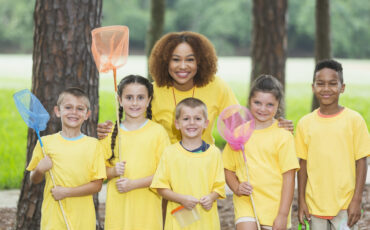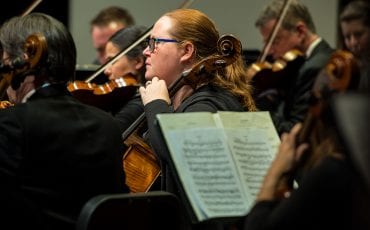Cool Coding Classes and Programs for Kids in Atlanta

Table of Contents
Coding: Language for the Future
The most commonly spoken language in the world is English, followed by Mandarin Chinese. The six official languages of the United Nations are Arabic, Chinese, English, French, Russian and Spanish. Scratch, JavaScript, Python, SQL and HTML are also common languages. Not familiar with them? They come from the world of coding.
But what exactly is coding and why does it matter? According to ComputerScience.org, coding tells a machine which actions to perform and how to complete tasks. Programming languages, aka code, provide the rules for building websites, apps, video games, and more.
“Coding and computer programming are the new literacy,” says Jerry Massey, owner of three metro area locations of The Coder School. “The way they world is now, the younger generation needs to understand the way technology works. Coding teaches them to be creators not just consumers.”
For 11-year-old Ethan, creating quick animations is how it all started. “I liked playing Roblox and other similar games and wanted to understand how they worked.” His parents signed him up for coding lessons in Alpharetta as an after-school activity. Three years later, Ethan, can now build games in four coding languages and continues to progress his skills.
“As with learning a second language, the earlier one begins, the easier it is to learn as there is less to ‘unlearn’ as more connections are being made,” says Becah Jubon, education and programs manager at the Computer Museum of America located in Roswell.
Younger students can learn to group information and see patterns. Older students can start with block coding languages like Scratch since they already have familiarity with technology. “There is no one-size-fits-all program, says Divya Sarin, general manager of The Coder School. “Lessons are mapped out for students based on their skills and abilities.”
Learning the syntax of a world language and understanding those same fundamentals for code is a key to success. “Most of the best coding professionals that I know learned early from their parents,” says Massey. “When kids learn coding or any language early, the syntax and the structure is innate, so there’s no intimidation as things get more complex.”
As Jubon explains, “Just as one needs to learn the correct syntax of subject, verb, and object to speak any language and be understood, to code, one also needs to learn the correct syntax for programming commands and writing algorithms in any particular programming language. Learning to be fluent in either takes repetition, practice, and usage.
Even though starting early can help with acquisition, it’s important to not to push coding on your child for fear they won’t catch up. “If your child hasn’t started yet, no worries,” says Jubon. “Knowing that it’s never too late to learn new skills and to be a lifelong learner is also very important.”

Learning Life Skills
When you learn a world language, it comes with additional benefits like understanding other cultures and having a different perspective on the world. Coding also helps students gain new skills that can help them as they grow.
Problem solving and perseverance: Coding is a problem-solving mindset. There is a lot of trial and error with coding. It also teaches kids that it is ok to make a mistake and gives them the confidence to start over and try again.
Organizational and logical thought processes: Coding is a great method by which kids can learn to break down information and tasks, then organize and prioritize. This is helpful for time management as students get older and can also relate to other subject matter, including math.
Modern skill set for the future: Knowing how to code or how computers work is useful in almost all career fields now. When young students enter the workforce, it will be an expectation. Setting kids up with the fundamentals now will help them be ready for whatever comes their way.
Your child might be interested in coding if he or she is…
- Naturally curious
- Good at making up rules for games
- Good at following or creating step-by-step instructions
- Detail oriented; for example: good at proofreading or noticing errors
- Interested in automating processes; for example: making a sequence to get chores done efficiently
- Exhibits creative thought, likes finding patterns
- Likes logic puzzles and riddles: for example: frequently relating if this, then that or cause and effect
- Likes to collect data; for example: frequently checking for updates on smartwatches, weather stations, or writes down when they last fed the pet
- Wants to understand how things work; for example: building things or taking them apart
-Sources: Becah Jubon, Divya Sarin
You can begin ‘coding’ without using a computer!
Coding builds on itself and kids can naturally progress their skills as they master the one before it. Some of the foundational skills in coding apply outside of the digital world:
- Play board games to learn rules and sequencing of events.
- Practice storytelling.
- Play with codes and ciphers. Encode your name using different methods such as Morse Code, pig Latin, cipher wheels, Polybius squares or other codes.
- Learn about Binary code in a book or online.
- Follow instructions to make crafts or drawings using Perler beads or graph paper.
- Practice writing instructions for someone else to follow to build a small LEGO structure
Ready for more?
Once kids have a general skill set, they are ready to move on to actual:
- First, try programs that use block coding, such as Scratch or Minecraft Code Builder. This gives the young programmer the language that’s needed. They simply need to pick their objects and actions and drag and drop them into the correct order for the task they want to accomplish. –
- Then, comes text-based coding. Many kids love Minecraft or Roblox and can learn Java or Python as they progress from block coding.
- Try robotics! Programming a small robot to follow a path or not plow into a wall provides a fun and physical outcome for beginning coders.
Coding Classes in Atlanta
Looking for coding and tech instruction? Check out these places around Atlanta for cool coding classes that’ll have your kids working with apps, robotics and Minecraft mods. In addition to after-school amd Saturday classes, many also offer summer camp opportunities.
- The Coder School. Four metro locations, thecoderschool.com
- Code Ninjas. Multiple locations, codeninjas.com
- Kids Next Code. Multiple locations, kidsnextcode.com
- CodeCubbies. Cumming, codecubbies.com
- Code Wiz. Lawrenceville, thecodewiz.com
- Museum of Design Atlanta. Atlanta, museumofdesign.org
Online Coding Programs to Try:
- Hour of Code. code.org
- Khan Academy. khanacademy.org
– Tali Benjamin







